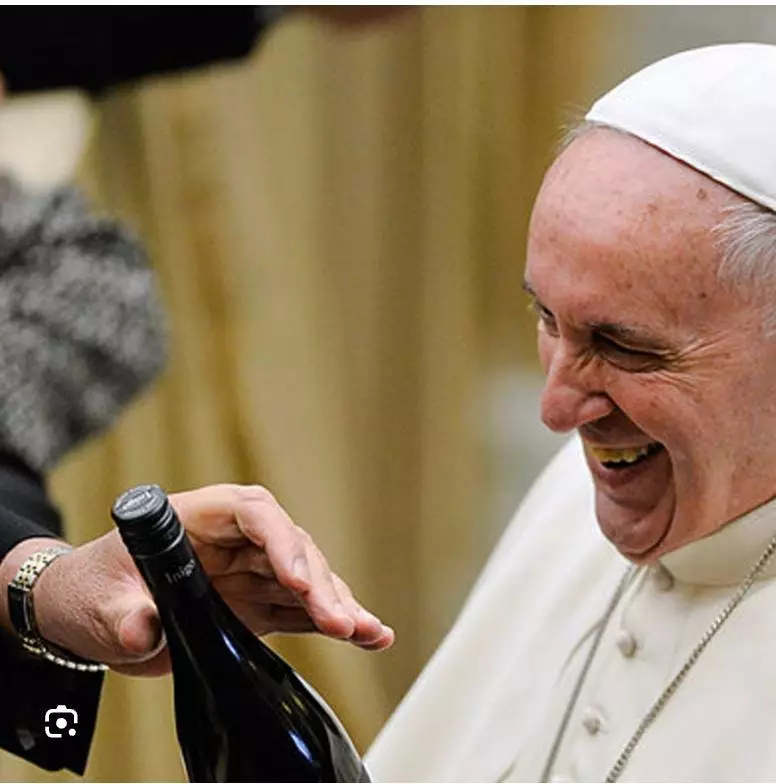As the world mourns the passing of Pope Francis, the wine community, particularly those rooted in Italian traditions, feels a profound sense of loss. Pope Francis, though born in Argentina, carried the rich cultural and vinicultural legacy of his Italian heritage throughout his papacy. Last year, he engaged a significant gathering of over a hundred Italian wine producers, acknowledging their vital role in both the economy and the preservation of the land. He spoke of wine not just as a product but as a blessing—a gift from God entwined with respect for the environment and a commitment to healthy consumption. This appreciation for craftsmanship and sustainability reflects a broader trend in the wine industry, where authenticity and ethics increasingly resonate with both producers and consumers.
Pope Francis understood the intersection of faith and biology—it is no mere coincidence that wine holds theological significance in many cultures. It embodies community, celebration, and, perhaps most importantly, the human condition’s celebratory moments. As the Vatican’s exclusive wine supplier, the Spanish winery Heras Cordón has maintained its position since 2001, sharing a unique connection with the Church through its products. The transition of papal leadership may introduce changes to this relationship, but the legacy of Francis may very well steer future pointers toward sustainable and meaningful viniculture.
Gen Z’s Shift: Economic Constraints over Lifestyle Choices
Simultaneously, an intriguing demographic shift is manifesting in drinking habits among Generation Z—often characterized by their digital-savviness and pragmatic outlook. A recent study by Rabobank brought this generational divergence into sharper focus, arguing that economic realities rather than mere lifestyle choices guide Gen Z’s hesitance toward alcohol consumption. As Bourcard Nesin aptly puts it, “Gen Z ain’t got no money.” Unlike their predecessors, this generation faces economic uncertainties, lower income stability, and a protracted stay in their family structures.
This financial landscape greatly contrasts with earlier generations‘ experiences, where economic empowerment fostered social exploration through alcohol. Instead, Gen Z seeks novel interactions that don’t revolve around traditional drinking culture. They invest their time in digital platforms, which offer an alternate way to form relationships—sometimes at the expense of genuine interpersonal connections. The ramifications echo through the beverage industry, compelling producers to rethink their marketing strategies and product offerings to engage this economically pruned yet socially connected demographic.
Innovations in Sustainability: From Waste to Wonder
In a delightful twist, the conversation surrounding wine has also branched into innovative sustainability efforts. The convergence of technology and environmental mindfulness is evident in the recent developments from Arda Biomaterials, a UK chemistry tech company focused on repurposing brewing waste into sustainable leather alternatives. With over $5 million in funding, the enterprise stands on the precipice of revolutionizing material production by emphasizing plant-based resources, a contrast to the plastic-driven economy and consumption patterns that have permeated recent decades.
This initiative is emblematic of a larger societal shift towards valuing sustainability, especially among younger consumers. As they prioritize ethical considerations in their purchasing, wine producers, along with other food and beverage sectors, must pivot to match those evolving expectations. The groundwork being laid at companies like Arda emphasizes the importance of circular economies—a recognition that waste from one industry can fortify another. What was once discarded can customarily become desirable, unveiling new opportunities and rejuvenating old practices.
The Health Connection: Wine Beyond Moderation
As we delve into the health implications of wine consumption, emerging research from the Canadian Journal of Cardiology introduces a thought-provoking perspective. Contrary to the long-standing belief that red wine reigns supreme when it comes to cardiovascular benefits, recent findings suggest that white wine and even Champagne could share similar health-promoting properties. With a wealth of data drawn from the vast UK Biobank, researchers indicate that moderation of unhealthy lifestyle choices could dramatically reduce the risk of sudden cardiac arrest.
This revelation is pivotal not just for wine aficionados but for anyone engaged in health and wellness discussions. As wellness culture becomes increasingly mainstream, the narrative surrounding alcohol consumption must evolve to embrace the nuances of varying wines, advocating for responsible moderation rather than abstinence. As public perceptions shift, the opportunity arises for both producers and consumers to engage in more profound discussions about the role wine plays in dietary considerations, coupling enjoyment with health consciousness.
The intertwining stories of the papacy, generational shifts, sustainability innovations, and health narratives reflect a fascinating tapestry woven together through the lens of wine. Each element contributes to the ongoing dialogue about the place of wine in contemporary society, revealing its significance beyond mere consumption to a symbol of cultural expression, economic reality, and environmental stewardship.


Napsat komentář